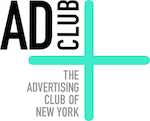2020: The Year of Disruption
From Member Troy Troutner, Regional Vice President, West Coast, Kargo
Remember when the word “disruption” was primarily about tech innovations? Then a global pandemic came along, followed by a long-overdue mass movement for racial justice. Now, disruption is a constant state and it’s not just for tech. All brands have been truly challenged and pushed in new directions over the past year by these sudden upheavals in medical, social and political realities. How they respond to the changes can make or break them in the blink of a consumer’s eye. In short, disruption is now business as usual. But is that a bad thing?
Some brands have risen to the challenges. One of them, perhaps learning a lesson after prior struggles as a corporate citizen, is Uber. New messaging like “No mask, no ride” and “If you tolerate racism, delete Uber” clearly set out what the brand stands for, and elevates their values above earning a few extra fares. It’s a bold stance, but one that’s raised them above brands that remained silent. Ben & Jerry’s deserves kudos for communications that don’t tap dance around the big issues.
When brands take these bold public stances, especially on racial injustice, their actions can be cited as opportunistic or “performative allyship.” This is especially true of companies with workforces and workplaces that don’t match up with their professed values. We’ve all seen social posts calling out companies lacking in diverse leadership. The #pullupforchange movement actively pressured brands to release workforce composition and pay equity data.
Thankfully, most companies are responding to these gaps between what they say and what they do like never before. Leadership teams are stepping back and starting deeper conversations—with staff, with partners, with social leaders—on how to listen and do better. Diversity and inclusion are no longer just topics for HR meetings, but major themes in ALL meetings. And many companies, including Kargo, are digging into the hard work of educating themselves through round tables, resource pages, guest speakers, and volunteerism. Corporate philanthropy has made a bigger shift toward social justice, too. Apple is leading the way with a $100 million pledge to “challenge systemic barriers.”
Another important angle that gets less coverage, is seeing companies look beyond their walls to reassess entire industry practices. For instance, Kargo is evaluating the impact of keyword blocking—a common targeting tool—on reinforcing systemic biases in media buying and damaging the ability of editorial news sites to finance fact-based journalism. We saw an alarming trend toward blocking blunt terms like Black Lives Matter and COVID-19 in the name of brand safety over the past months. We’re working with our advertisers and publishers to change that. Stay tuned for more details.
I’ve heard 2020 being endlessly compared to a dumpster fire. Disruption can feel like that. But if we stand back and see some of the ways brands are responding, we can see positive changes not just being talked about, but being enacted. Of course, 2020’s not done yet, but I’d like to think that whatever it throws at us next, our companies, our brands, our products, our marketing can lead the way in facing them.
